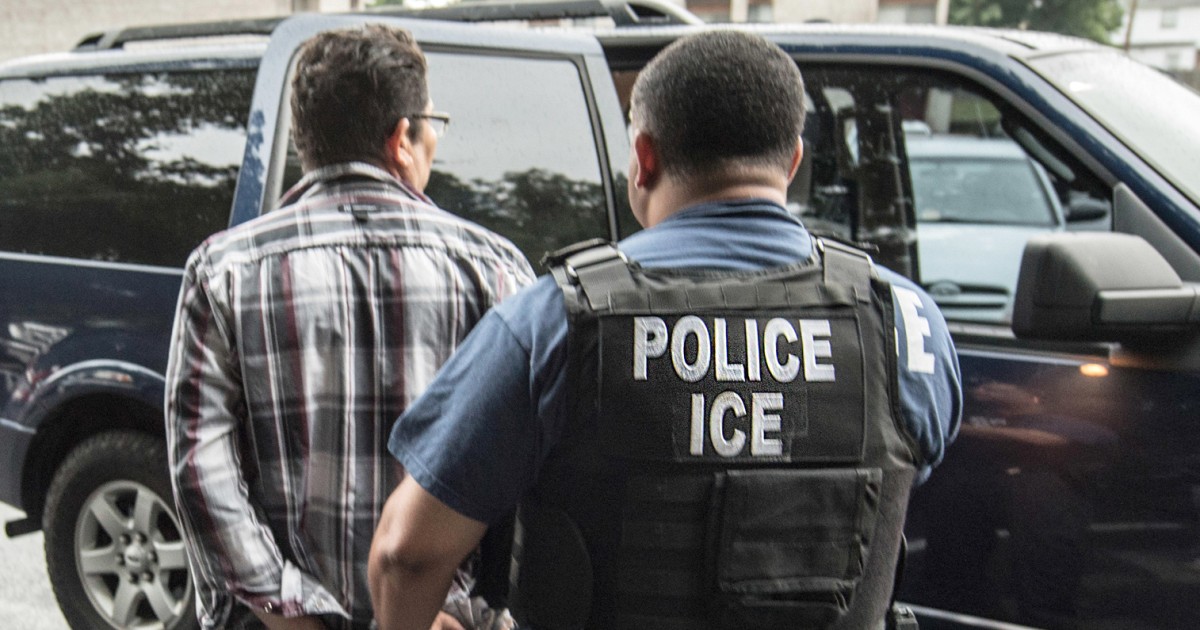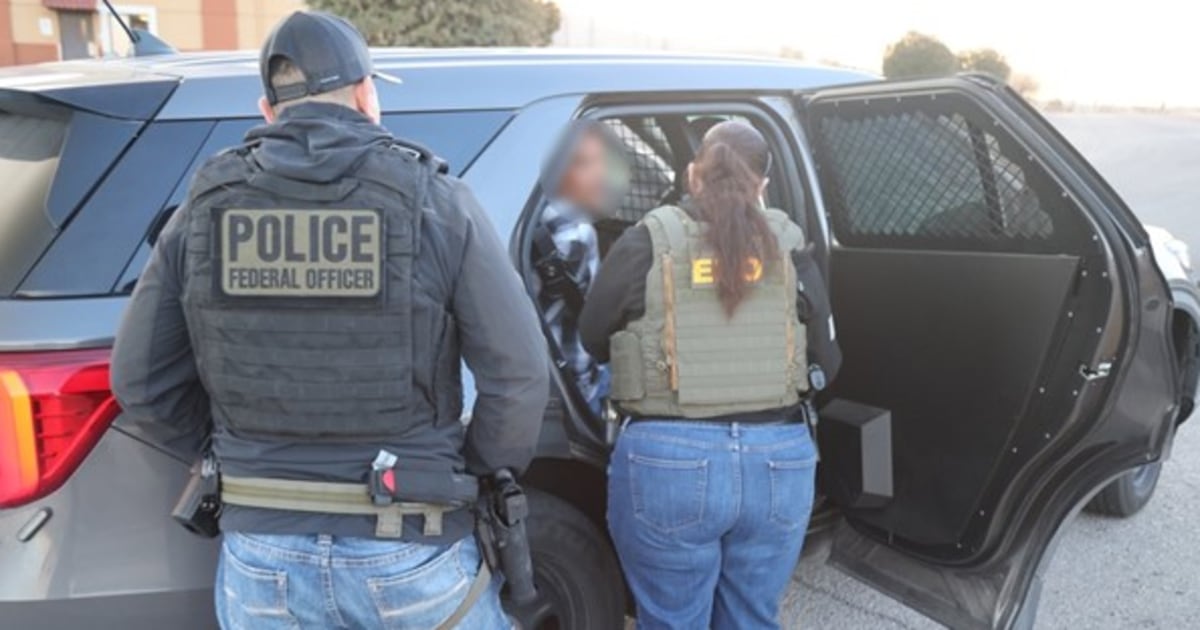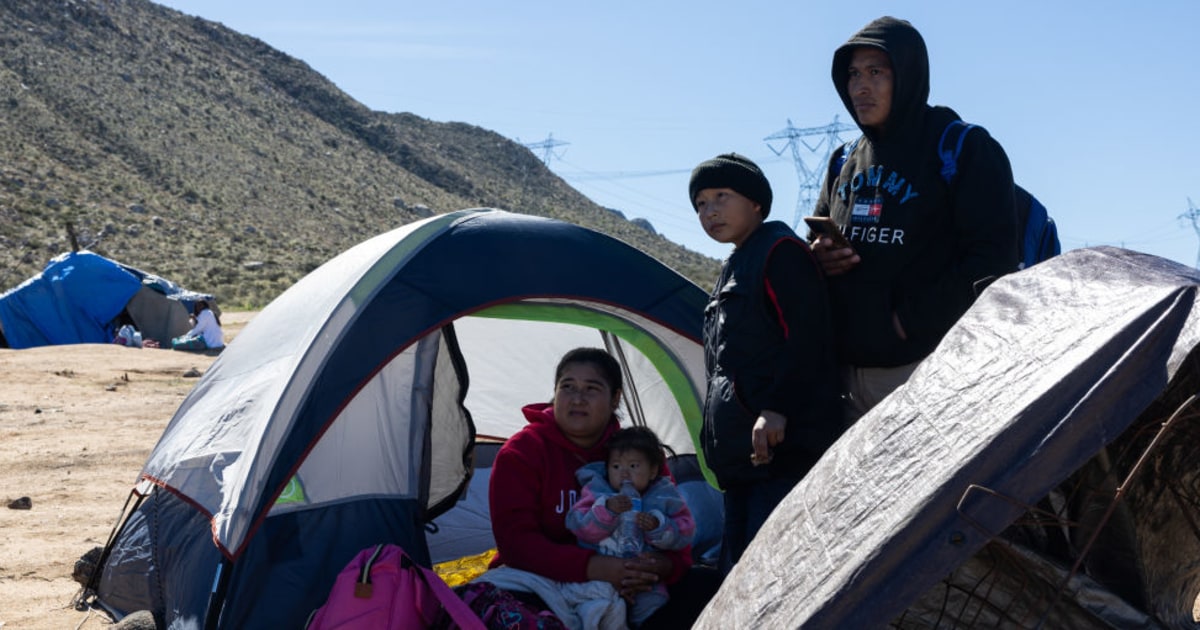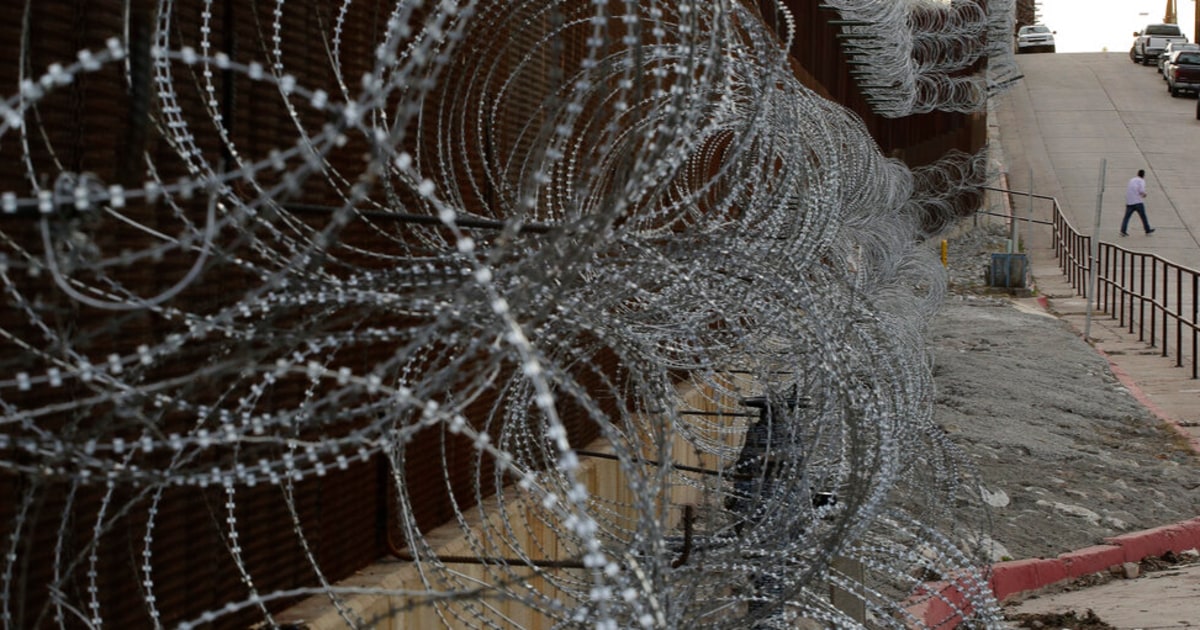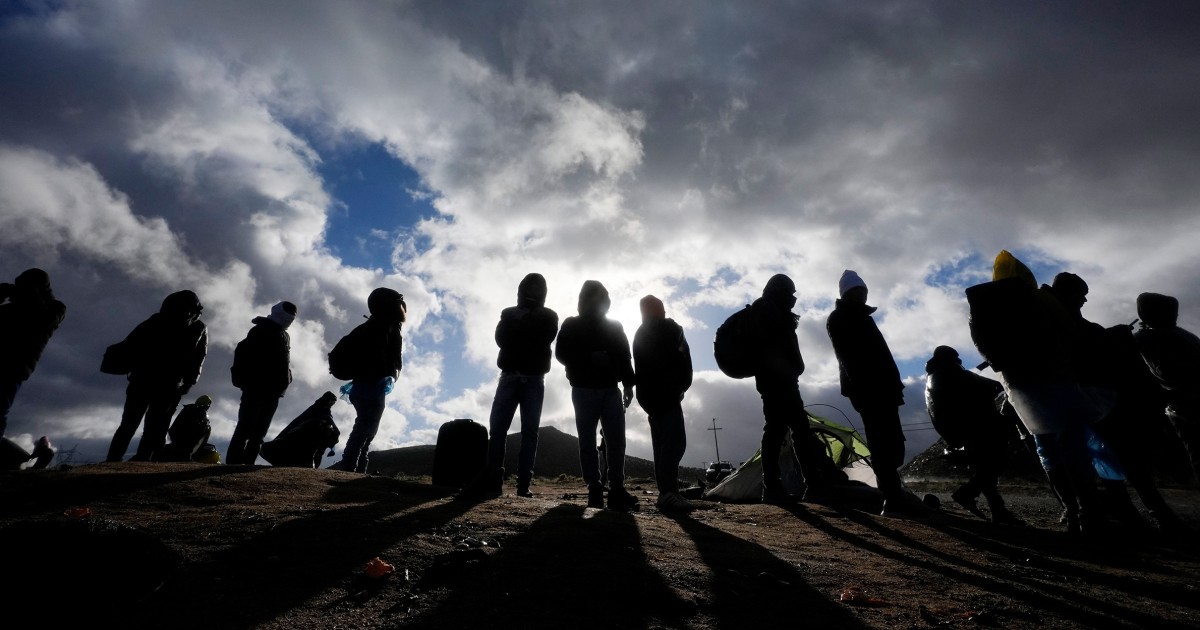The Southern Poverty Law Center (SPLC) has filed a complaint with the Department of Homeland Security's
Office of Civil Rights and Civil Liberties (DHS)
demanding an investigation .
about illegal deportations carried out by the ICE office in New Orleans in the last two years.
“If someone is placed on expedited removal and expresses fear of returning to their country,
the United States government is supposed to give them the credible fear interview
.
It is a legal obligation that the ICE office in New Orleans has violated on at least three occasions… and that is a great failure of ICE”, says Mich González, Director of the Initiative for the Liberation of Immigrants of the Southeast (SIFI, for its acronym in English).
González assures that his office and SPLC have represented people who have been deported in full process or without receiving one.
“We are deported without the right to an interview and we are in danger in our country,” José, a 25-year-old Nicaraguan, told Noticias Telemundo Investiga, from his confinement in the Pine Prairie ICE detention center in Louisiana a few hours before be deported, in December 2021.
"The next shot is not going to be plastic"
José prefers to keep his last name anonymous for fear of reprisals in his country.
He relates that he arrived in the United States after suffering several beatings by Nicaraguan government forces in September 2021. “They
put a rubber bullet in me and the National Police beat me
.
That's where they said 'the next shot is not going to be plastic'.
And here [in the United States] they still turn their backs on me,” he laments.
[Few migrants processed in the United States have been vaccinated in custody]
For two months, José had begged the immigration authorities by any means possible to interview him for credible fear and give him a hearing before a judge, a right as an asylum seeker.
And despite the intervention of his lawyers, his pleas fell on deaf ears.
On December 23, 2021, he was deported.
The case of his friend Fernando, 24, also Nicaraguan, runs parallel to that of José: both coincided in the Laredo processing center, both went to the Pine Prairie ICE detention center in Louisiana and were deported on same day without having received a credible fear interview.
"Day after day I expected a call to even an interview... And nothing, they practically left me in oblivion," laments Fernando, who was deported without legal support.
The cases of José and Fernando have been included in the SPLC complaint along with other asylum seekers.
What is a credible fear interview?
A credible fear interview is a filter used by the government to determine whether or not a person has a reasonable fear of persecution or torture because of their race, religion, nationality, or political opinion in the place they are fleeing from.
The asylum process, in these cases, begins when the immigration judge decides that the credible fear interview has been passed.
To questions from Noticias Telemundo Investiga about José's case, an ICE spokesperson replied that "he was granted all due process to which he was entitled under United States law."
Mexican authorities detain 388 undocumented migrants in Veracruz
Jan. 20, 202200:38
Gonzalez disagrees.
He claims that, after inquiring into José's case, the Houston asylum sub-office in New Orleans told him that neither Customs and Border Patrol (CBP) nor the ICE Office in New Orleans referred José's case to the police. United States Citizenship and Immigration Services office or USCIS for its acronym in English, to process the credible fear.
“It is the obligation of the Government of the United States to examine them so that they can proceed with their basic request for asylum,” González denounces.
“And that minimal interview, very, very minimal, is something that simply cannot be eliminated,” he adds.
Intimidated during the asylum process
This, the lawyer points out, not only violates the rights of these people, but also goes against federal regulations.
Ensures that there are more cases of asylum seekers who are being deported due to errors and carelessness committed by the two federal offices that process detainees in Louisiana centers: the ICE office in New Orleans and the USCIS Houston Asylum sub-office , also in New Orleans.
These two federal offices are the ones that process foreigners who request asylum and who are detained in the Louisiana centers.
Noticias Telemundo Investiga has corroborated the lawyer's complaint with two dozen asylum seekers interned in centers in Pine Prairie and Winn, Louisiana.
The most common complaint is that they felt pressured, intimidated and limited to answering questions
without being able to elaborate or present their cases during the credible fear interview.
“They did not recognize that I was tortured and that I have four wounds on my body.
They didn't put him in the interview,” says a 39-year-old Nicaraguan asylum seeker who prefers not to give his name and who speaks from Winn.
"The judge told me that he did not believe that in the interview they did not allow me to speak," claims another asylum seeker from the same detention center in Louisiana.
[
Frustration Among Texas Asylum Seekers Over State's High Denial Rate
]
According to a Syracuse University study, in fiscal year 2021, immigration judges deported 23.4% of fully processed cases, some 15,480.
They raped him but he could not present his case
LDG was given a credible fear interview, but reports that when the time came, due to the nature of his case, he felt insecure about entrusting it to a male interpreter.
He couldn't choose.
LDG explains that he had to flee Colombia after a group of paramilitaries beat him up for the community work he was doing with the reintegration of former members of the guerrillas into society, therefore his life is in danger.
LDG says he was hit in the back with a machete and raped in that assault.
Migrants face sticks and stones with authorities in Guatemala
Jan. 17, 202201:46
“How are you going to tell a man something like that, and even less under that, under those pressure conditions?” he wonders.
Noticias Telemundo Investiga reviewed a credible fear document that contains the questions asked of the petitioners and found that there is one that indicates whether the foreigner has a preference to speak with a male or female interpreter.
He says that the interview was conducted with a male agent on the phone through an interpreter, also on the phone;
he remembers him impersonal and very intimidating.
LDG insists that his credible fear failed because he was unable to state his full case.
“I didn't tell the guy from ICE because since the call began, he was pressuring me all the time and yelling at me not to answer that, that 'I didn't ask that,' 'answer what I'm asking you.'
'Don't overdo it.'”
“I was about to tell him, look, leave it like that, but they are going to interview you with a credible fear and they treat you because they put a very, very, very terrible pressure on you.”
This is something that worries Elio Vásquez, his lawyer: “
They are not giving them the opportunity to explain in detail the persecution they have in their country
.
Sometimes they just tell him "answer the question he asked you, don't give any more explanation".
That's one of the things that sometimes credible fears don't make it to what's called the officer's assessment."
And Vásquez adds that the judges are limited to deciding what has already been decided by the asylum officer.
"This man being deported... they gave him a death sentence"
Elio Vasquez, represents a deportee
On December 16, LDG had a hearing before an immigration judge.
He went hoping to tell him what he did not dare to tell the man who interviewed him earlier.
The judge confirmed the decision of the immigration agent and gave him a deportation order.
LDG says she showed the 40 stitches on her back crying, but the judge told her she couldn't see them.
"Sometimes they, even if they want to, the judges do not allow them to tell them the story, they only base it on the report prepared by the asylum officer," says Vásquez.
"I'd rather die here"
LDG's attorneys appealed and asked for a stay of deportation.
ICE had already received the request, but never received a response.
His lawyer, Elio Vasquez, denounces that his client was deported without his team realizing it.
Immigrant advocates ask Biden not to expand an ICE detention center in Georgia
Dec. 21, 202100:32
LDG these days is hiding in Colombia and terrified.
"This man, upon being deported... they gave him a death sentence," Vasquez says.
“I'd rather die here than be sent to kill those unfortunate men.
I am not going to return to Colombia”, says LDG just days after being returned to Colombia.
Noticias Telemundo Investiga asked the USCIS office about this case.
As of the date of publication, we have not received a response.
For its part, the ICE office in Louisiana told us in the face of other cases that we investigated that "For reasons of privacy - even regarding possible family members - it is ICE policy not to discuss individual asylum issues."
[Immigration cases without judicial resolution reach the record figure of almost 1.6 million]
This same office was the one that mistakenly deported a Haitian father, according to his lawyers, less than a month ago.
Days after being deported, not only were threats the order of the day, but they also caused him to be beaten, leaving him with multiple blows to the face and body.
Back with the Sandinista card
José and Fernando have also lived with anxiety since they arrived in Nicaragua.
They say that they were subjected to interrogation by the police, who had their names written on a list when they arrived on Nicaraguan soil.
They took photos of them and took them to their homes, where they also took photos of their relatives.
Days later, both received a Sandinista militancy card that, on the one hand, helps them find work but also requires them to be loyal to the Nicaraguan ruling party.


